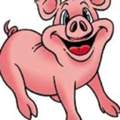Englisch Steigerung Adjektive?
Hallo, wann werden Adjektive mit more, most gesteigert?
3 Antworten

Von gutefrage auf Grund seines Wissens auf einem Fachgebiet ausgezeichneter Nutzer
Sprache
germanische Steigerung
- einsilbig gesprochene Adjektive und Adverbien: great-greater-the greatest, soon-sooner-the soonest, large-larger-the largest, fine-finer-the finest, big-bigger-the biggest
- zweisilbig gesprochene Adjektive mit dem Ton auf der 1.Silbe, wenn die 2.Silbe sehr kurz gesprochen wird (-le, -er, -ow, -y): simple-simpler-the simplest, clever-cleverer-the cleverest, narrow-narrower-the narrowest, easy-easier-the easiest
Schreibregeln:
- stummes End-e fällt weg: fine-finer-the finest, large-larger-the largest
- Endkonsonant wird verdoppelt nach kurzem, betontem Vokal: big-bigger-the biggest, thin-thinner-the thinnest, fat-fatter-the fattest
- -y nach Konsonant wird zu -i: easy-easier-the easiest, silly-sillier-the silliest
romanische Steigerung
- zweisilbig gesprochene Adjektive, die nicht auf -er, -est steigern: famous-more famous-the most famous, brilliant-more brilliant-the most brilliant, handsome-more handsome-the most handsome, prudent-more prudent-the most prudent, giant-more giant-the most giant, villain-more villain-the most villain, massive-more massive-the most massive etc.
- drei- oder mehrsilbige Adjektive: wonderful-more wonderful-the most wonderful, difficult-more difficult-the most difficult, interesting-more interesting-the most interesting, sympathetic-more sympathetic-the most sympathetic
- alle abgeleiteten Adverbien auf -ly: slowly-more slowly-the most slowly, calmly-more calmly-the most calmly, beastly-more beastly-the most beastly
- alle Partizipien: willing-more willing-the most willing, tiring-more tiring-the most tiring, tired-more tired-the most tired, pleased-more pleased-the most pleased
Besonderheiten, z.B.
- polite - politer / more polite - the politest / the most polite
- severe - severer / more severe - the severest / the most severe
- angry - angrier / more angry - the angriest / the most angry
- common - commoner / more common - the commonest / the most common
- einige weitere Adjektive, bei denen man beide Formen hört: cruel, pleasant, quiet, sour, obscure, friendly (sogar "gentle" und "simple")
Ausnahmen
- good, well - better - best
- little - less - least
- bad(ly), ill - worse - worst
- much, many - more - most
Zu den Unterschieden zwischen next und nearest, older und elder etc. habe ich jetzt keine Lust mehr! Und zum Korrekturlesen auch nicht.

Nun habe ich doch was gesehen. Der Schurke (the villain) muss raus. Da habe ich doch glatt ein Nomen zum Adjektiv gemacht!

In der Regel, beim Vergleich (comparaison ) wird ‚ er ‚ than .., dazu gefügt
small, smaller than, the smallest
ausnahmen gibt es
good, better than, the best
beautiful ,more beautiful than, the most beautiful!

Wenn es kein Wort für die Steigerung gibt.
Bei „good“ „better“ „best“ z.B. existiert jeweils ein Wort. Aber bei „tired“ usw. nicht.